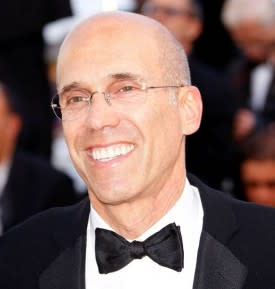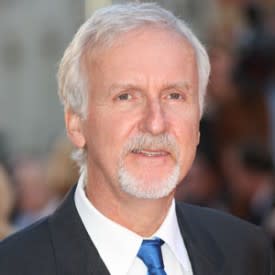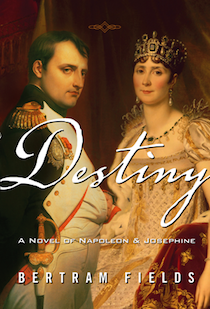Bert Fields Talks Disney Ban, George Lucas, James Cameron, Harvey Weinstein, Napoleon & The Next Big Thing

EXCLUSIVE: It might not be too much of a stretch to say that Bert Fields has played a role in almost every great Hollywood legal battle of the last 30 years. The Cardinal Richelieu of Tinseltown attorneys, Fields counts among his accomplishments successfully taking on Disney and Michael Eisner to the tune of a $250 million payout for Jeffrey Katzenberg back in the late 1990s. He repped Star Wars creator George Lucas in negotiations with the House of Mouse as well. The Greenberg Glusker Fields Claman & Machtinger partner has also represented Tom Cruise, the Weinsteins, James Cameron, Warren Beatty against Paramount over Reds, the Beatles, Michael Jackson, Godfather author Mario Puzo and his estate and other heavyweights, including studios like Universal. Snared for a time in the FBI’s spotlight over his hiring of Anthony Pellicano, Fields eventually emerged unscathed from the scandal — a fate not shared by many who employed the still-imprisoned P.I.
Adding to his C.V., the sometimes Stanford Law School instructor lectures regularly at his Harvard alma mater and has also authored several books, both fiction and nonfiction. His latest was Destiny, a historical novel about Napoleon and Josephine, and he has another one about a character from the works of Shakespeare coming out soon. Fields sat down recently in his wood-paneled Avenue of the Stars offices to talk about his writing, his clients and cases, and where he thinks the industry has been and is going.
DEADLINE: When you teach at Stanford Law School, I know you like to talk to your students about the future of the entertainment industry. But you also talk to them about the past and one thing you say is “that there was nothing so great about the good old days.” What do you mean by that?
BERT FIELDS: Oh, I think today we’re looking for people who are both creative and effective at business, a balance of the two. And I think in those days you didn’t have to have so much creative ability. I mean, Louis B. Mayer had no creative ability, but he was a tough guy. When I started practicing law, and even before that in the good old days of the film business, you had a bunch of tough guys with very little education and really very often very limited skills in dramatic expression.
So I think that the industry today, although it has problems, is probably a nicer place in which to work than it would have been in 1938 or 1956, when I started out. And that’s what I meant, the good old days were days when studios could ban people from the lot. Today you have really highly educated, really capable, much more rounded people who are running the entertainment business I think. Certainly the lawyers are. They’re much more skilled, much more educated, much more able to deal with the artistic issues, creative issues. I mean, I think that in all the lawsuits that I’ve brought against studios, I certainly would have been banned everywhere back then.
By the way, I was once banned from Disney; Michael Eisner banned me from Disney. I think it was because I represented George Lucas in something.
DEADLINE: What happened?

FIELDS:
I think it was over Lucas, I’m not sure. But I was banned and Jeffrey Katzenberg really solved that. He was working at Disney at the time and he had asked me to lunch, and he said, “Look, I’m sorry about that and I’m going to try and make it work out.” And he did. I was starting a strike by all the key entertainment lawyers against Disney. I was going to say if they’re barring me from the lot, none of us are going to deal with Disney. But I didn’t have to do that because Jeffrey got Eisner to back down.
DEADLINE: You later went on to represent Katzenberg in his successful $250 million back-bonus case against Eisner and Disney in 1999, where you went toe-to-toe with Eisner and turned his insults against him. Was the overturning of the ban the start of your relationship with Katzenberg?
FIELDS: I had known him as an executive at Paramount before he went to Disney when he and Eisner were both at Paramount. I always liked him, and we got along well even though I didn’t get along with Eisner.
I can remember sitting down with him when he went to Disney from Paramount, and I think he had a chance to go to Fox. And I can remember saying, “You’re going to Disney? What, are you going to make pictures about Mickey Mouse? Why would you do that?” And this was before, of course, these guys turned it around. To Eisner’s credit, he and Jeffrey and Frank Wells took that studio and made it a whole new thing. I never thought they could and I thought it was stupid for Jeffrey to be hitching his star to that.
DEADLINE: With that, what do you think of the quality of movies coming out of the studios today?
FIELDS: I don’t see a tendency for the bankers who may run a company to lean on the people who are running studios to make trash. I think they’re making enough trash on their own. They’re highly motivated to make a profit, they always were.
Keep in mind even at the beginning, the money was always in New York and yes they make pictures out here and it’s true they weren’t worldwide companies in 60 different businesses, but the guys in New York really controlled things, just as they theoretically control them now. So, I don’t think anybody is insisting that they not make good pictures. I think they’re not making good pictures as much as I’d like to see because of their own desire to make a profit. Although this year is better I think, very few really serious adult pictures are being made.
DEADLINE: The consensus is that television has stepped into that arena.
FIELDS: To a great extent that’s true, television has gotten a lot better because we’re not dependent on networks selling stuff. People really are putting on some pretty good television shows. But I don’t think it’s replacing film.

DEADLINE: What do you think when the likes of Netflix’s Ted Sarandos push the studios and exhibitors to join the 21st century with more same-day multi-platform openings and convergence?
FIELDS: They have to join the 21st century but the industry always changes and it will continue to change. Will there be theaters in the future? I think there’ll always be theaters. I think people will always want to get out and go to the movies and not necessarily see it at home. But I think we’ll have huge home screens that are a convergence of the computer and the movie screen. And then maybe we’ll get beyond that and we’ll have holograms where we just sit in our living rooms and then have three-dimensional characters act out the movie right in front of us.
DEADLINE: Like if you were at the Globe Theatre in the time of Shakespeare or the Tupac hologram that showed up onstage at Coachella?
FIELDS: Yeah, exactly. People are now starting companies to buy the post-life rights from movie stars and performers. Theoretically I could say OK, we’ll sell you the post-life rights of Tom Cruise for what, 200 million dollars.
DEADLINE: This is starting to sound like a sequel to Edge Of Tomorrow and the next big thing..
FIELDS: You’re right. But I think it will be more performers than actors because I’m not so sure that people are going to want to see the work of Brad Pitt 10 years after he dies in a new movie, the way they would want to see Elvis Presley perform, or Michael Jackson.

DEADLINE: Speaking of change, you took on the MPAA in late 2013 over the R rating they handed the Weinsteins’ film
Philomena, which would have knocked it out in many ways. How did you get them to change their minds and break one of their own rules on swearing in movies?
FIELDS: They responded to our argument. Remember that they had decided against the Weinsteins, and this was the appellate panel. The MPAA have the one “f*ck” rule: you can only say it once in a movie or you get an R.
DEADLINE: And Philomena had two.
FIELDS: Steve Coogan was terrific in his presentation. I thought he really did a good job getting across the idea that this was not meant to be exploited, that it had a place that you had to show this kind of anger. And there wasn’t any other word that this guy, he played the reporter, could use that would get across his rage like “f*ck.”
We had polls that had been taken in Midwestern towns where the people overwhelmingly said this film should not have an R rating. And I think that carried a lot of weight because they say their standard is what do the American people think. I mean a one-f*ck rule? That’s nuts, it’s so arbitrary.
DEADLINE: Do you think that the MPAA ratings system is due for a change, or do you think they’re evolving?
FIELDS: I think they’re evolving, but I do think they could use a little brushing up. I think the one-f*ck rule is silly, but Philomena illustrates that there is flexibility. We violated the rule and they backed away from their own rule.

DEADLINE: Must have made Harvey very happy.
FIELDS: Oh, yeah. Well on the other hand if they had ruled against him, knowing Harvey, he would have had the press everywhere speaking out about how terrible the ruling was. Maybe he would have gotten more mileage out of that than he got out of the win. But no, he was happy with the win.
DEADLINE: What are some big legal issues that you believe Hollywood must face in the near future?
FIELDS: I think the class action against the studios over the 20% home entertainment rate is something to pay attention to. I myself may be filing a similar action for a client soon.
RelatedUniversal Reaches $26M Settlement Over Home Video Royalties Class Action
DEADLINE: Do you feel the industry is plagued or served by the lawsuits that we see nowadays, like the potential Sony hacking class action?
FIELDS: I think that that’s a two-part question. If you are the head of a studio, you’re plagued because you used to get away with a lot of stuff that you can’t get away with now. Maybe that’s an unfair way to put it – nowadays you’re sued even a lot of times when you’re right and you shouldn’t be sued. So, from the point of view of the head of the studio and the legal department of the studio, it’s a lousy environment. From the point of view of talent, it’s a much better situation because when I started out, talent was afraid to sue studios. Studios could take a vengeance. And you sue the studio and you weren’t going to make a lot of pictures at that studio ever.
And that’s all gone, totally. I bring them all the time now. I think that lots of the people who are the plaintiffs in those cases would 50 years ago have been terrified to bring those cases. People feel much more free to bring lawsuits and to make claims against studios — happens all the time. So from that point of view it’s a much better environment.
DEADLINE: You have and continue to represent some of the crème de la crème of the industry. Tom Cruise is one client you’ve gone to the mat for, Jeffrey Katzenberg’s another, but who are some of your other favorite clients?

FIELDS:
George Lucas is amazing. I mean, he created a not only an industry but a world from Star Wars. And he was smart enough to keep it, as in a lot of the profitable parts like merchandising, for himself. But that’s kind of unique. Nobody’s done anything close…
DEADLINE: Were you involved with some of that stuff back in the mid-1970s?
FIELDS: No. From time to time I’d represent George in different things. I got involved in a theme park deal several years ago and I’ve been involved in some other things for George. From time to time he’ll call and with problems that he might have. But I’m a great respecter of George. I think he’s just terrific. But again, that’s a whole different kind of thing. That’s a one-shot, Jim Cameron is like that. Jim has created a world — twice. I mean with Titanic and then Avatar.

DEADLINE: I would also say
Terminator, at least the first two, but that’s because I’m showing exactly when I was growing up.
FIELDS: I agree. Terminator was brilliant. Jim is unique in the same way George is. I mean, not the same way but in an analogous way he has created worlds of his own. But there aren’t very many George Lucases or Jim Camerons out there or ever have been.
DEADLINE: Sounds like you really have no time for nostalgia about Hollywood’s past or its myth-making?
FIELDS: Absolutely. Things were if anything, they were tougher in those days. I mean, those people didn’t have a lot of sympathy for failure, and they weren’t going to prop up somebody who wasn’t delivering the goods.
DEADLINE: No possible third chances like today?
FIELDS: Well, I think of Billy Wilder. There’s just a tragic example of a guy that was at the very top, he was the Steven Spielberg or Jim Cameron of his day. And he was pushed aside. It would be as if Jim made these two pictures that are the top-grossing films of all time and then suddenly made one that wasn’t so successful and you never heard of him again. That was Wilder, and for no reason other than a couple of pictures didn’t do quite so well.
DEADLINE: Seems today it’s the execs who end up tossed out if expectations aren’t met or …
FIELDS: Used to happen then too. There was a guy at MGM when I was a very young lawyer back in the 1950s named Dore Schary who had the same kind of thing happen to him. He’d been a writer and Louis B. Mayer brought him in to be chief of production. Eventually he ended up running the studio. He was a very creative guy and he made pictures like The Red Badge Of Courage and serious pictures. Got canned after a few years.
There’s a great story about Schary and those days that show how different they are from today. I think it was his first day at MGM and he was now the head of production. And some guy had been saying bad things about him and he was now Louis B. Mayer’s guy. So, while Schary was in Louis B. Mayer’s office, he called in this guy who had been talking behind Schary’s back and he said, “Now Dore here is our new head of production and you’ve been saying some stuff about Dore that I don’t like. I want you to kiss his shoes.” And then the guy laughed and he said, “Yeah, I’m sorry Mr. Mayer.” And he says, “No, no. Kiss his shoes right now or you’re fired.” And he did. And Dore Schary left and threw up in the men’s room after that.
DEADLINE: You incorporated that story into the piece you wrote for Deadline founder Nikki Finke’s Hollywood Dementia site earlier this summer. With all the Hollywood stories you have, are we going to see more such fiction from you now?
FIELDS: I doubt it. I wrote two novels many many years ago under an assumed name. I lot of people wanted me to write a third novel but I think I’ll stick to nonfiction.
DEADLINE: You’ve written about Shakespeare in Players, exploring if he was actually the author of his plays. You wrote a biography of Richard III, exploring if he really did kill his nephews, among others. You had Destiny, a historical novel about Napoleon and his empress Josephine, come out earlier this year. Where did a busy lawyer get the urge to take on those challenges?
FIELDS: Well one, I learned to write by being a lawyer. I was on the law review at Harvard, and that experience I think I learned to write with economy, how to construct a sentence, and how to say things in a way that might be effective. Then writing briefs over a long period of time, I honed those skills. And one day Mario Puzo who was a dear friend and client was reading a brief in his case, I think it was a case against Universal, and he said, “You can write. Why don’t you write books?” Well, it had never occurred to me to write books. So I started writing books and I wrote those couple of sex novels.
RelatedParamount & Puzo Estate Settle ‘Godfather’ Suit
DEADLINE: What compelled you to write those novels from the ’80s and 1990s about the Hollywood lawyer with the raging libido under the name D. Kincaid?
FIELDS: They were fun but I was then a young lawyer and I thought it would not be a good idea to come out with those in my own name. And then one day my father who was a surgeon and something of a scholar said, “Well, these books, son, they’re fun. But when are you going to do something serious with your life?” And I said, “Well I thought practicing law was pretty serious.” He said, “You know, I don’t mean that. I mean, scholarship.” So I started out on Richard the Third and then that took a long time.
DEADLINE: Which leads to the question that I’m sure everyone asks, from the day job to having a life to the non-fiction books to the novels, where do you find the time?
FIELDS: My period of gestation is longer than most writers. So I typically I write on vacations, weekends, but I have this day job.
DEADLINE: So how long did your last book Destiny take to write from beginning to…

FIELDS:
Destiny actually didn’t take that long. I had read quite a bit about Napoleon and about Waterloo. I’m kind of an amateur military historian. So I knew that stuff, and then it was just a question of writing it. Typically in the nonfiction books I have to do a great deal of research, much of it in England, and takes it much longer, like nine years to turn out one of those books. This probably took less than a year.
DEADLINE: And you’ve got another book coming out before the end of the year?
FIELDS: Yeah, I’ve written a short book, a novel called Shylock. It tells the whole story of the character from The Merchant of Venice. But when I say the whole story, I made up the whole story and tried to create a total character.
DEADLINE: Is this your version of Tom Stoppard’s Rosencrantz And Guildenstern?
FIELDS: It’s similar, it’s analogous to that. It tells about how he came to Venice and what his life was like in Venice. And it’s got some romance in it and it talks about how Shylock came to this strange bargain for the pound of flesh, and then what happened. I think readers will see it as another departure for me. While I’ve written about the Shakespeare question, who really wrote the plays, this is the first time I’ve written about a Shakespeare character.
DEADLINE: Sounds like there is another career waiting to happen out of these last two books. Are you considering making a movie of Destiny? You know the right people.
FIELDS: Somebody called and wants to make a movie of it. I can’t talk about it yet. So I don’t know but it’ll be a costume movie.
DEADLINE: Keira Knightley’s always a good bet there.
FIELDS: Yeah. And these days you can do wonderful things with costume movies that aren’t quite as expensive as they used to be.
DEADLINE: So we might see a credit soon that says, “Destiny based on an original novel by Bertram Fields”?
FIELDS: You might see that, you might see a television special. That happened with The Borgias, with Mario’s book, although they didn’t use Mario’s book The Family. But if they can do the Borgias, they sure as hell can do Napoleon.
Related stories
Warner Bros Wants Bert Fields' Law Firm Tossed From 'Lord Of The Rings' Case
Universal Wants "Needless" Bond Copyright Suit From MGM & 007 Producer Tossed
Paramount & Puzo Estate Settle 'Godfather' Suit
Get more from Deadline.com: Follow us on Twitter, Facebook, Newsletter
